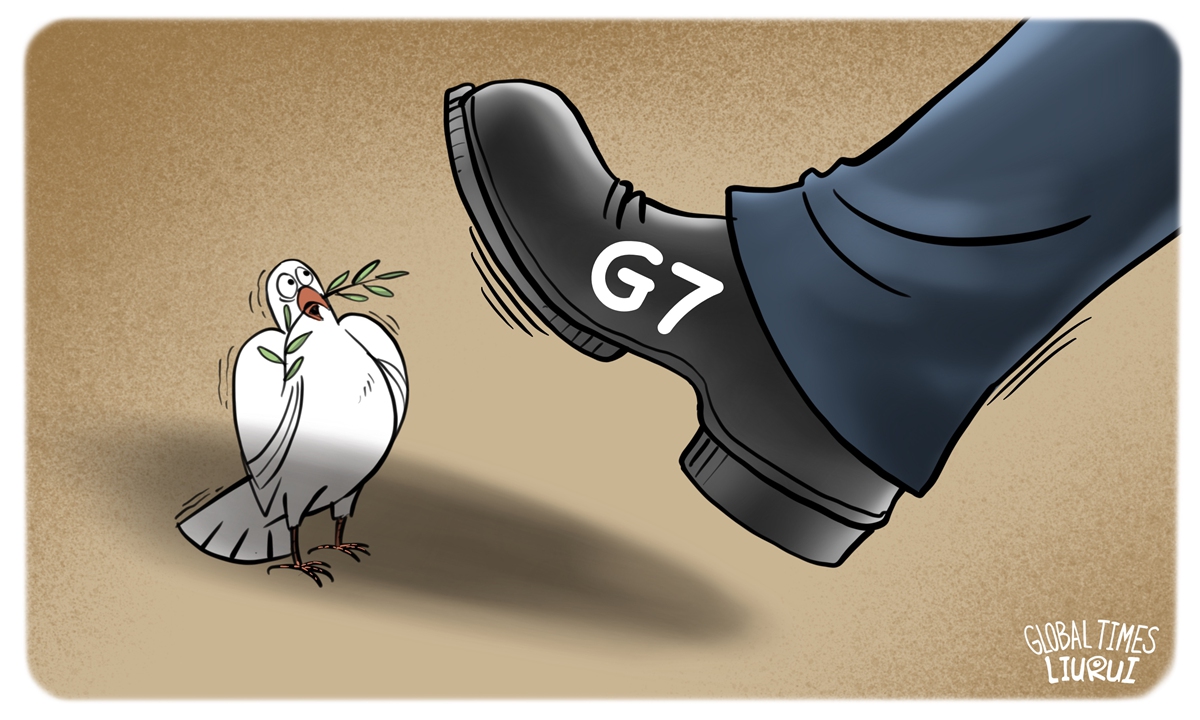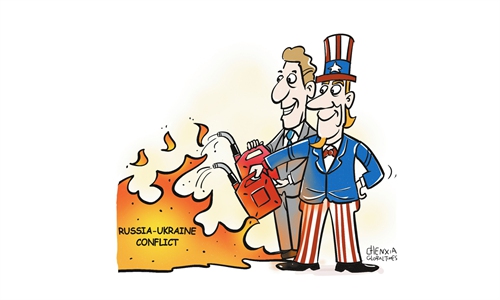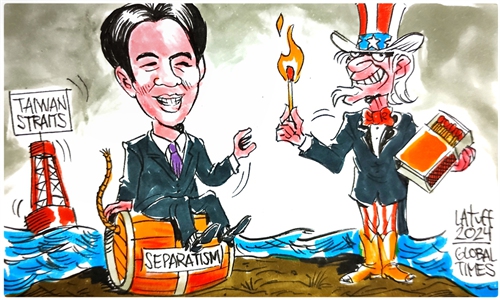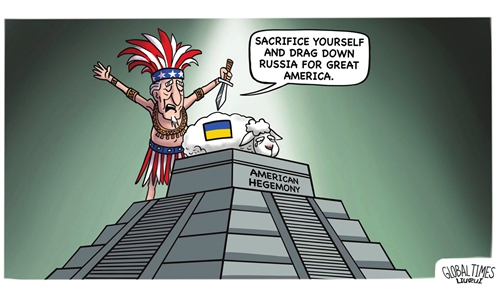
Illustration: Liu Rui/GT
On Saturday, the G7, led by the US, convened a meeting of defense ministers in Naples, Italy, and issued a joint declaration. However, this first-ever Joint Declaration of the Ministers' Meeting on Defense was disappointing, as it offered no new ideas to promote peace and stability; instead, it was filled with clichés that fanned the flames and shifted blame.
According to reports, the G7 Ministers' Meeting on Defense discussed several topics, including support for Ukraine's "irreversible path" to NATO membership and concerns over UN peacekeepers in Lebanon. Additionally, China once again became a focal point for the G7. The declaration meddled in the Taiwan question and expressed "concern" about the situation in the East and South China Seas. NHK reported that "defense chiefs from the G7 nations have expressed their commitment to coordinating a security and defense presence in the Indo-Pacific region and this comes amid China's growing military activity."
Li Haidong, a professor at China Foreign Affairs University, told the Global Times that the G7's declaration exposes its destructive mentality, which thrives on chaos. On one hand, it attempts to fan the flames of the Ukraine crisis, on the other, it seeks to create a new crisis in the Taiwan Straits. Li believes that the G7 is attempting to bring crises to the Asia-Pacific region, aiming to create deeper divisions and confrontations to establish a regionally dominated security landscape led by a Western alliance.
In today's increasingly turbulent world, countries are yearning for security and stability, hoping for a de-escalation of crises. However, G7's actions contradict this global consensus. In recent years, the G7 has done little to constructively address major international issues, instead becoming a megaphone for division and chaos. In the ongoing Ukraine crisis, Western nations, led by the US, have repeatedly promised Ukraine a "bright future," using NATO membership to lure Ukraine. However, Finland's Foreign Minister Elina Valtonen has acknowledged that Western countries are growing weary of supporting Ukraine. Against this backdrop, the G7's claim of support for Ukraine's "irreversible path" to NATO raises doubts that this "support" is merely a form of "poisoned candy."
The recent joint declaration from the G7 defense ministers once again reveals its hypocritical nature. On one hand, the G7 points fingers at the situations in the South China Sea and the Taiwan Straits; on the other, it reaffirms its unchanged basic positions on the Taiwan question, insisting on the one-China principle. To truly "safeguard peace and security," some G7 countries, first of all, need to stop sending erroneous signals to "Taiwan independence" forces, rather than pointing fingers at Beijing.
Li believes that the G7's focus on the Asia-Pacific region, rather than addressing issues within its own area, is due to elite groups sidelining their citizens' expectations. Besides, the G7's ongoing interference in the Asia-Pacific situation clearly goes against the wishes of the majority of countries in the region that seek peace and prosperity.
Once a "club of wealthy nations" that accounted for nearly 70 percent of the global economy, the G7 now faces a serious existential crisis, with its economic share continuously declining and its global population representation and appeal diminishing. Provoking regional tensions and creating divisions and confrontations have become strategies for the G7 to reinforce its position. While the G7 claims to uphold world peace, it draws ideological and value-based lines, using its "small circle" to incite factional conflicts. In regional conflicts, such as those in Ukraine, it only exacerbates tensions and shifts blame, failing to make any positive contributions and even diminishing its role in global governance.
The leaders of the G7 should realize that a lack of internal prosperity and development will only make their displays of strength appear superficial. Instead of pointing fingers at other countries, they would be better off spending more time addressing their own issues, which might help restore the G7's significantly diminished reputation.



